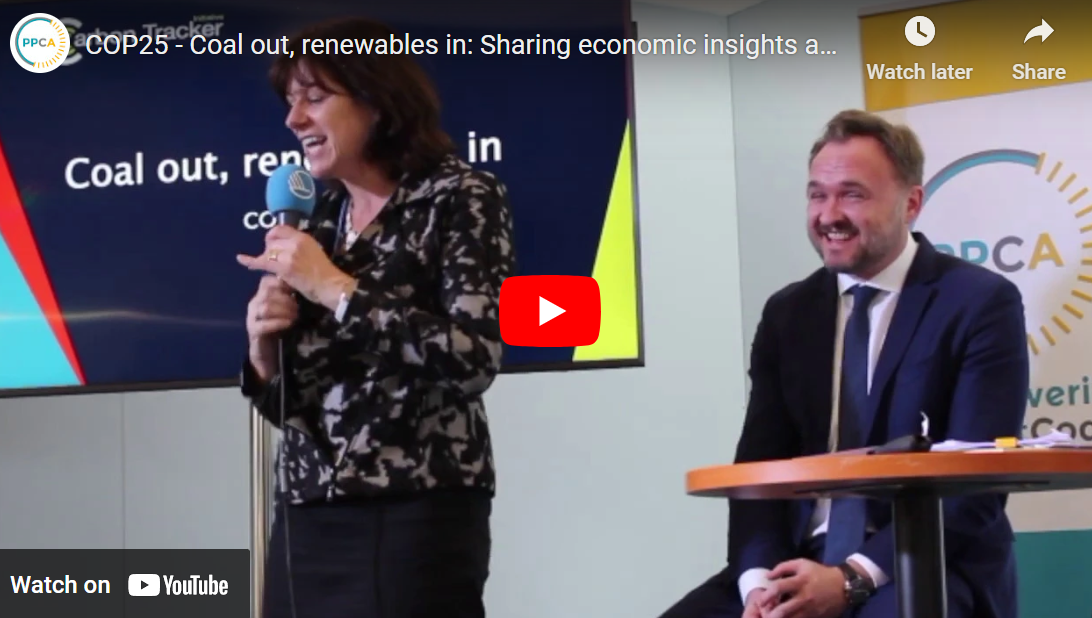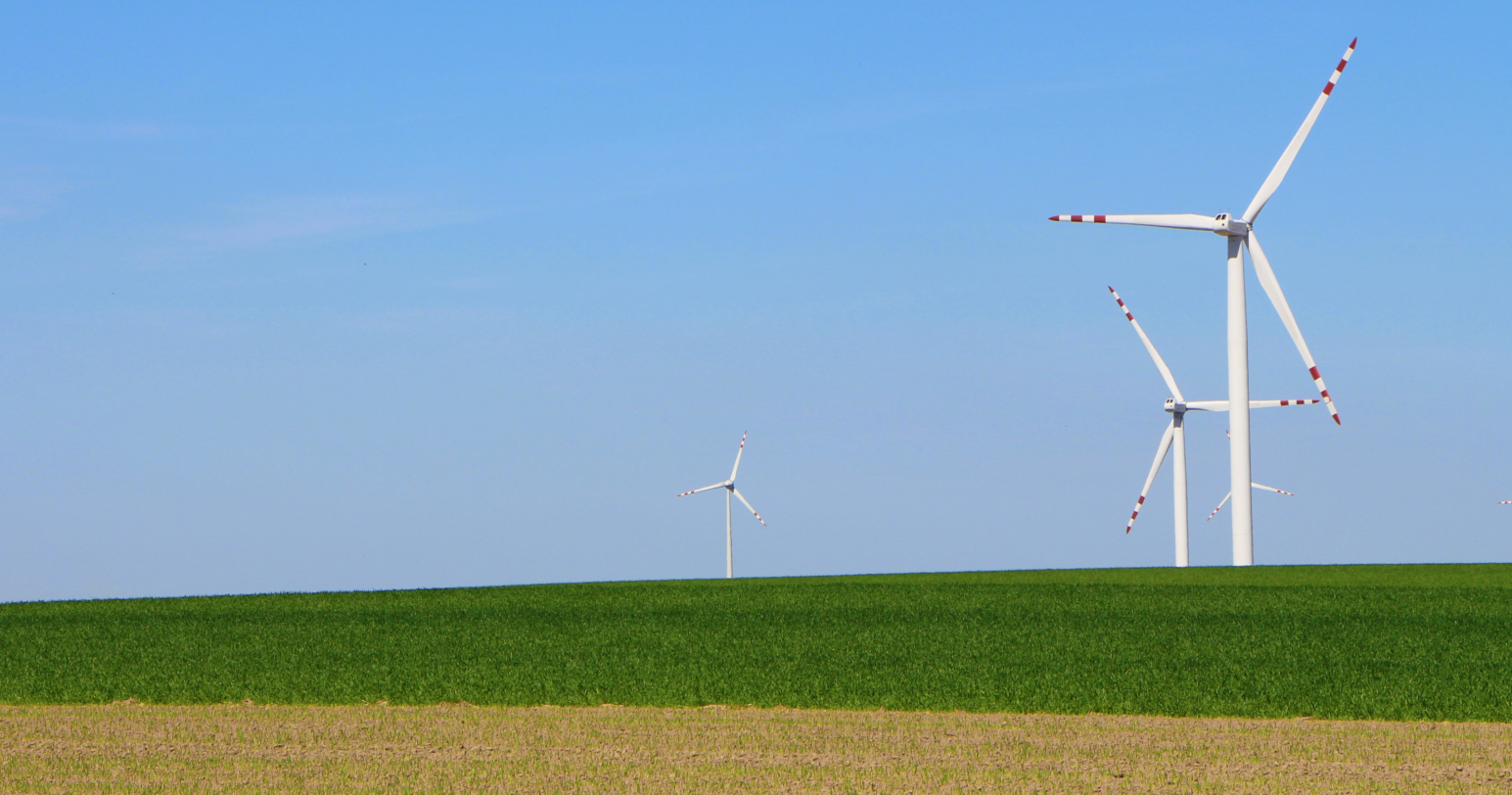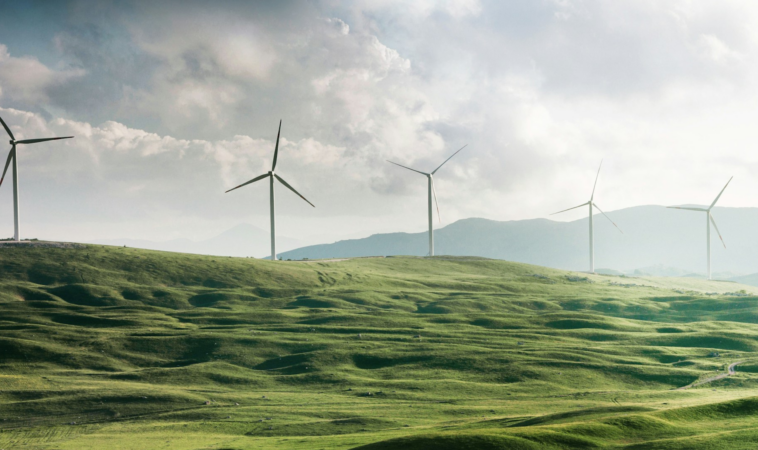
What policy mechanisms could be employed to help countries move towards clean energy sources with a key focus on the changing economics around coal?
What are the economic benefits of investing in renewables, particularly in South East Asia, in light of UN Secretary General Guterres’ calls for no new coal by 2020 and curtailing current coal capacity? We convened a discussion at the UN Climate Summit COP25 in Madrid in December 2019.
Dan Jorgensen, Danish Minister of Climate, Energy and Utilities spoke about Denmark’s ambitious climate and renewable energy targets: to reduce emissions by 70% by 2030 compared to 1990 levels, and to achieve 100% renewable electricity by 2028.
Referring to the PPCA, Jorgensen said:
‘We should all do as much as we can as countries on our own territory, but we also need to work together in Europe […] and we should be willing to share our knowledge with other countries on the planet. Not because we hope to sell our technology to them, but because we share the same planet and the same objectives.’
Claire O’Neill, COP 26 President pointed to technological advances in renewable energy, public-private partnerships and an adequate policy framework, including a unilateral carbon price and air quality legislation that have been driving the UK’s decreasing dependence on coal.
O’Neill issued a call to ‘make coal history’ as a key measure to address the climate emergency. She said:
‘I don’t underestimate how difficult this transition is. I think it is wonderful that we now have 97 members in the Powering Past Coal Alliance: governments, states, cities, companies that are prepared to stand up […], make coal history and deal with that transition.’
Canada’s Ambassador for Climate Change Patricia Fuller stressed that ending the era of coal is the biggest opportunity for solving the climate challenge. Fuller spoke about Canada’s commitment to supporting developing countries in their energy transition, including through developing energy storage and decentralised grid technologies. Canada also contributes $275M to the World Bank to support countries in South East Asia and South Africa in reducing their dependence on coal.
Durand d’Souza, Data Scientist at the Power Team at Carbon Tracker Initiative spoke about changing economics around coal. According to his analysis, the increasing costs of coal and decreasing costs of solar and onshore wind will result in almost every coal plant in South East Asia being outcompeted by new renewable energy already
by 2030.
Susanne Pedersen, Assistant Director General at the Global Green Growth Institute pointed out that various renewable energy technologies are already cost-competitive in South East Asia, but they face other major obstacles: the reluctance of governments in the region to grant permits to foreign operators, financial institutions’ perception of renewables as risky or large subsidies for the coal sector.
Helen Wildsmith, Stewardship Director at CCLA Investment Management highlighted investors’ action on the coal phase-out: engaging with companies exposed to coal assets; allocating money to infrastructure through green bonds and transition bonds; and advocacy among policymakers. She highlighted that at COP25 a record-breaking number of over 600 investors managing nearly $40tn in assets called upon governments to phase out coal power.
According to Tomas Anker Christensen, Danish Climate Ambassador, the UN Climate Summit COP26 in Glasgow next year should conclude with governments declaring the end of the fossil fuel age. Ambassador called upon all countries of the world to join the PPCA and commit to ending the coal era. The upcoming EU-China summit in September 2020 is an opportunity for the two partners to agree on a joint pathway forward and thus boost momentum for climate action globally.





